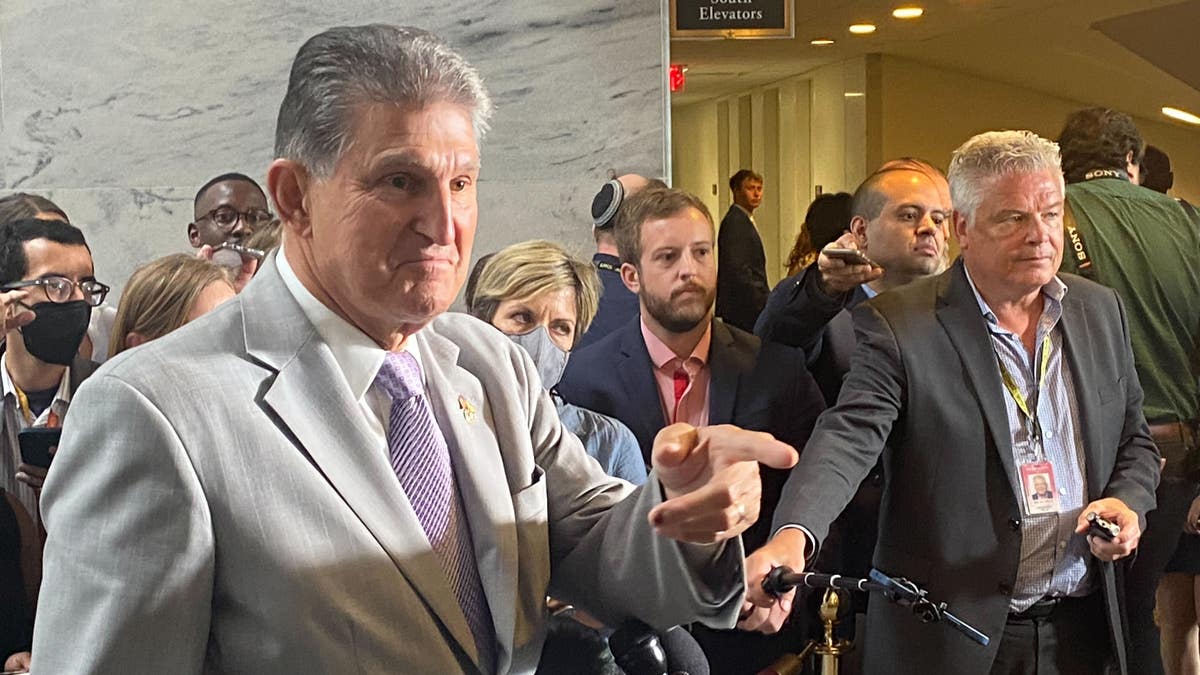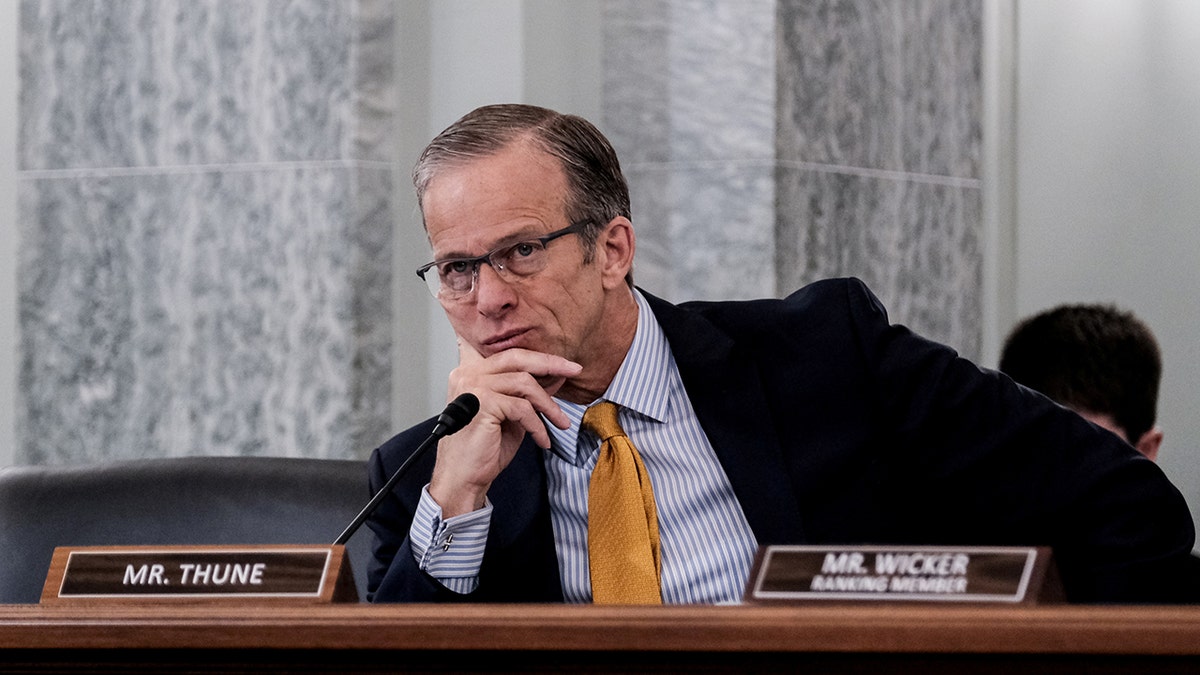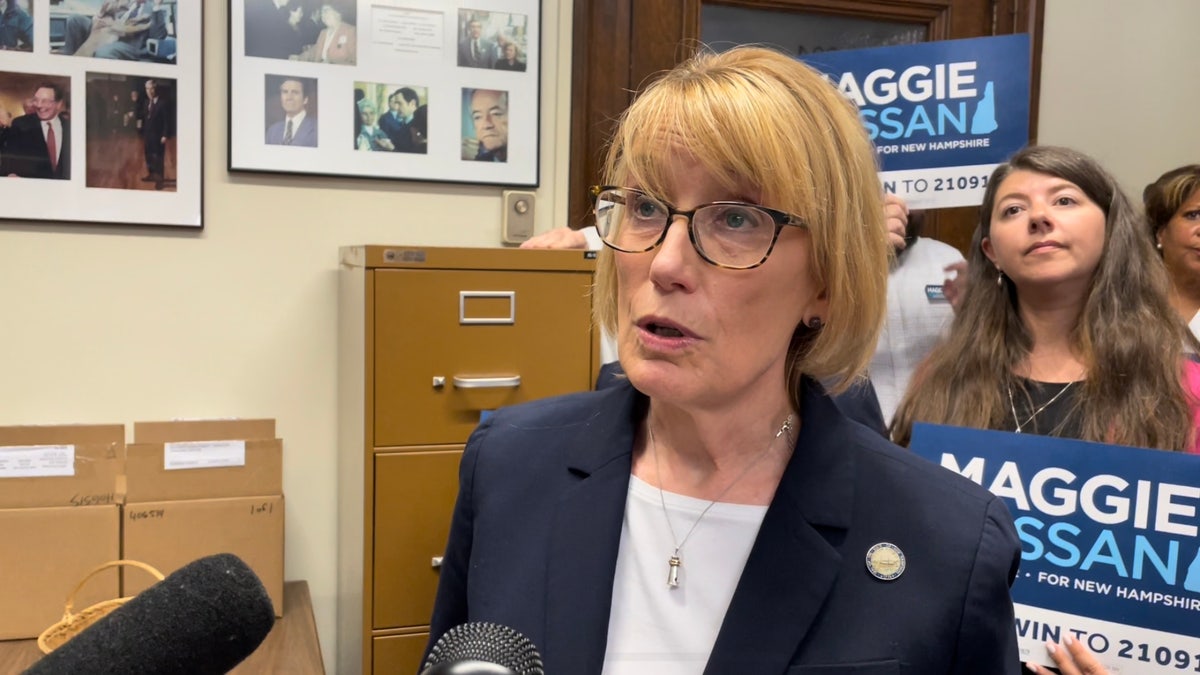Fox News Flash top headlines for August 7
Fox News Flash top headlines are here. Check out what's clicking on Foxnews.com.
The Senate Sunday passed the Democrats' social spending and taxation bill after a marathon "vote-a-rama" session that lasted more than 15 hours, marking a major win for the Democratic agenda just over three months before Election Day.
Vice President Kamala Harris cast a tiebreaking vote to allow the legislation to pass 51-50.
"I mean, it's the largest package ever for climate, it deals with an energy policy to make sense for this country, reduces the cost of energy, reduces health care costs for millions of Americans, and does it in a way that reduces the deficit and has tax fairness in our code," Sen. Ben Cardin, D-Md., told Fox News Digital. "It’s a great day, and we’re very excited about it."
"This is a night of triumph for them," Sen. Josh Hawley, R-Mo., told Fox News Digital. "Schumer has had the longest 50-50 Senate in history. And he has managed to get virtually all of their signature priorities through."

Senate Majority Leader Chuck Schumer pushed what may be Democrats' biggest legislative win so far this Congress across the finish line Sunday – but not until after an exhausting all-night vote-a-rama. (AP Photo/J. Scott Applewhite)
TRUMP PLEDGES TO CAMPAIGN AGAINST MANCHIN IN WEST VIRGINIA BECAUSE OF SPENDING BILL DEAL
Hawley added: "And with, by the way, the most unpopular president of my lifetime." Hawley also noted some Democrats' other agenda items passed with GOP support.
The bill passage is the culmination of more than a year of intra-party negotiations among Democrats trying to pass a party-line bill. They used a process called budget reconciliation, which allows them to get around the Senate filibuster to do it.
Although even avoiding the filibuster, Democrats still encountered a major hiccup toward the end of their effort to pass it. A drafting issue would have increased taxes on companies worth less than Democrats' intended $1 billion threshold if they were subsidiaries of a firm worth more than that amount.
Sen. John Thune, R-S.D., introduced an amendment to deal with the issue, which cost $35 billion. But his proposal would have been paid for by extending the state and local tax (SALT) deduction cap for one year. That would have complicated passage of the final bill, because many Northeast Democrats detest the SALT cap.

Sen. Joe Manchin calls on a reporter during a press conference about the Democrats' reconciliation bill. (Tyler Olson/Fox News)
The Senate passed Thune's amendment. But it changed the way to pay for it by using an amendment from Sen. Mark Warner, D-Va., to replace the SALT cap with "a two year extension of a so-called loss limitation policy." That amendment passed with Harris' help, and cleared the way for final passage.
After the last-second drama, Senate Majority Leader Chuck Schumer, D-N.Y., touted the legislation as a major win for the U.S.
"I am confident the inflation Reduction Act will endure as one of the defining legislative feats of the 21st century," he said.
Initially called "Build Back Better" at the start of talks last year and proposed to cost more than $3 trillion, party moderates like Sen. Joe Manchin, D-W.Va., pushed back on the massive spending. Manchin eventually broke off talks last December, to the frustration of party progressives and Schumer.
Manchin agreed on a scaled-back version in recent days titled the "Inflation Reduction Act." Manchin lobbied fellow moderate Sen. Kyrsten Sinema, D-Ariz., to get on board, which she did Thursday after some minor changes.
The bill raises more than $700 billion in tax revenue and spends over $400 billion. The key elements include extending Affordable Care Act subsidies, a suite of climate-related spending and tax credits, provisions on fossil fuel energy, a 15% minimum corporate tax rate and more.
Before Democrats could get the legislation to clear the Senate, however, they needed to get past the vote-a-rama. That provided an opportunity for Republicans to introduce unlimited politically charged amendments in an attempt to either inject poison pills into the bill or at least force Democrats to take tough votes.
However, Democrats remained united on every key vote to keep the bill intact, something Sen. Chris Coons, D-Del., said was a testament to Democrats' widespread support for the legislation.
BIDEN SAYS MANCHIN SPENDING BILL WILL ‘LOWER INFLATION,’ URGES CONGRESS TO PASS IT ‘FOR AMERICA’
"I think you'll be struck at how many of these amendments get unanimous…. really clear party-line votes," Coons said near the beginning of the process. "Much more than than I've seen in previous vote-a-ramas."
"They're just steamrolling tonight," Hawley said.
The vote-a-rama didn't produce major substantive changes to the bill, but it did produce some interesting 2022 campaign fodder. Republicans forced Democrats into difficult votes on energy taxes and the Title 42 immigration policy – an issue on which some Democrats up for reelection have publicly broken with the White House.
In both cases, Democrats unanimously defeated the GOP amendments on 50-50 party-line votes before introducing similar amendments which procedurally require 60 votes to pass. This freed up moderates and Democrats in tough reelection races to vote for those amendments, knowing they would not pass.

Sen. John Thune accused Democrats of using a "cynical ploy" on amendment votes during the Senate's marathon "vote-a-rama" this weekend. (Reuters/Michael A. McCoy)
Republicans attacked the moves as dishonest.
"It's a very cynical ploy for sure," Senate Minority Whip John Thune, R-S.D., told Fox News Digital. "Vote for one at 60 after you just voted against it at 51. But nothing around here surprises me."
"They're completely deceitful," National Republican Senatorial Committee Chairman Rick Scott, R-Fla., also told Fox News Digital.
"This gives phony and cynical a bad name. They wouldn't let you do this in professional wrestling," Sen. Lindsey Graham, R-S.C., said. "If you think people are this dumb, you're gonna be sadly mistaken."

Sen. Maggie Hassan Sunday morning introduced an amendment against energy taxes at a 60-vote threshold, moments after voting against a similar one at a 50-vote threshold. (Fox News )
Sen. Maggie Hassan, D-N.H., up for re-election herself, pushed back on Graham's criticism in floor remarks.
CLICK HERE TO GET THE FOX NEWS APP
"I'll just note the inaccuracy of what was said on the floor about the substance of this," she said.
Republicans also criticized the substance of the bill, including that it raises taxes during a recession and that multiple outside observers say it will not have a major effect on inflation.
Democrats, meanwhile, are accusing Republicans of bringing all of their amendments in bad faith. Manchin said before the final vote that he would not support any GOP amendments because Republicans plan to unanimously vote against the bill.
"[M]y R friends have made clear they’re completely unwilling to support this bill under any condition. None of their amendments would change that. For this reason, I’ll vote to protect the integrity of the [Inflation Reduction Act] regardless of the substance of their fake amendments," Manchin tweeted Saturday.
The House of Representatives is set to return to Washington, D.C., on Friday to pass the bill, sending it to President Biden's desk.






